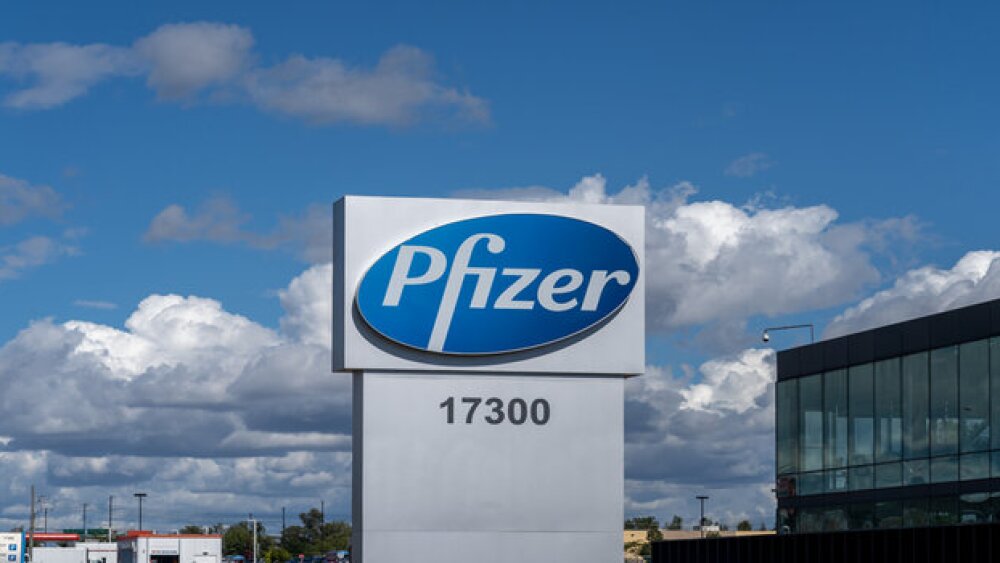“The technology invented by Drs. Shahin Rafii and Daylon James of the Weill Cornell Medical College is both elegant and useful, and may provide a means to generate virtually limitless quantities of high quality vascular cells,” said Joseph Wagner, Ph.D., Chief Executive Officer of OncoCyte. “The products derived from the combination of this technology with BioTime’s ACTCellerateTM and OncoCyte’s existing technologies to target and destroy malignant tumors, may lead to an entirely new modality for the treatment of solid tumors.”
“In addition to obtaining exclusive worldwide licenses to the patent-pending Cornell technology, we have entered into a sponsored research agreement with Weill Cornell Medical College that will utilize the expertise of the scientists who developed the licensed technology,” said Steve Kessler, Ph.D., Vice President of Research and Development of BioTime’s subsidiary ReCyte Therapeutics, Inc. “This collaboration will allow ReCyte Therapeutics’ scientists to collaborate with leading scientists at Cornell in the field of vascular biology, accelerating requisite animal and preclinical testing prior to human clinical use.”
Vascular endothelial cells form the tubular structure of the very small blood vessels known as capillaries, and the innermost cells of larger arteries and veins in the body. When these cells become dysfunctional, they are believed to play a key role in numerous disease processes such as coronary heart disease and stroke. The ability to reprogram cell lifespan and manufacture young and healthy patient-specific vascular endothelial cells may prove to be critically important for the future of certain therapeutic strategies in the emerging field of regenerative medicine. One of the largest markets may be age-related vascular disease such as coronary disease and stroke. BioTime has tested the Cornell technology when combined with BioTime’s ACTCellerate™ technology and has successfully produced highly purified monoclonal embryonic vascular endothelium. This high level of purity and scalability is expected to facilitate the manufacture of clinical-grade cells that may be used for transplantation therapies.
Vascular endothelial cells also form the blood vessels that support the growth of cancerous tumors. OncoCyte Corporation may use the licensed technology in its therapeutic approaches to derive vascular endothelial cells that can be engineered to deliver a toxic payload to the developing blood vessels of a tumor to remove malignant tumors while not affecting nearby normal tissues.
“Cornell University is committed to making results of its medical research fundamentally improve the quality of healthcare for an aging world population,” said Dr. Alan Paau, Vice Provost for Technology Transfer and Economic Development of Cornell University. “BioTime’s commitment to the field of regenerative medicine and the unique technologies it has marshaled in its commercial efforts, makes it the company of choice for us to bring these technologies to market.”
BioTime’s license is worldwide and exclusive for the fields of cell therapy for age- and diabetes-related vascular diseases and cancer therapy. The license also covers products utilizing human vascular or vascular forming cells for the purpose of enhancing the viability of the graft of other human cell types, and cell-based research products.
About BioTime, Inc.
BioTime, headquartered in Alameda, California, is a biotechnology company focused on regenerative medicine and blood plasma volume expanders. Its broad platform of stem cell technologies is developed through subsidiaries focused on specific fields of applications. BioTime develops and markets research products in the field of stem cells and regenerative medicine, including a wide array of proprietary ACTCellerate™ cell lines, culture media, and differentiation kits. BioTime's wholly owned subsidiary ES Cell International Pte. Ltd. has produced clinical-grade human embryonic stem cell lines that were derived following principles of Good Manufacturing Practice and currently offers them for use in research. BioTime's therapeutic product development strategy is pursued through subsidiaries that focus on specific organ systems and related diseases for which there is a high unmet medical need. BioTime's majority owned subsidiary Cell Cure Neurosciences, Ltd. is developing therapeutic products derived from stem cells for the treatment of retinal and neural degenerative diseases. Cell Cure's minority shareholder Teva Pharmaceutical Industries has an option to clinically develop and commercialize Cell Cure's OpRegen™ retinal cell product for use in the treatment of age-related macular degeneration. BioTime's subsidiary OrthoCyte Corporation is developing therapeutic applications of stem cells to treat orthopedic diseases and injuries. Another subsidiary, OncoCyte Corporation, focuses on developing genetic markers for the diagnosis of cancer, and on applications of stem cell technology in cancer treatment, including using vascular progenitor cells engineered to destroy malignant tumors. ReCyte Therapeutics, Inc. is developing applications of BioTime's proprietary induced pluripotent stem cell technology to reverse the developmental aging of human cells to treat cardiovascular and blood cell diseases. BioTime's newest subsidiary, LifeMap Sciences, Inc., is developing an online database of the complex cell lineages arising from stem cells to guide basic research and to market BioTime's research products. In addition to its stem cell products, BioTime develops blood plasma volume expanders, blood replacement solutions for hypothermic (low temperature) surgery, and technology for use in surgery, emergency trauma treatment and other applications. BioTime's lead product, Hextend®, is a blood plasma volume expander manufactured and distributed in the U.S. by Hospira, Inc. and in South Korea by CJ CheilJedang Corp. under exclusive licensing agreements. Additional information about BioTime, ReCyte Therapeutics, Cell Cure, OrthoCyte, OncoCyte, BioTime Asia, LifeMap Sciences, and ESI can be found on the web at www.biotimeinc.com.
About OncoCyte Corporation
OncoCyte Corporation is a majority-owned privately-held subsidiary of BioTime, Inc. OncoCyte’s mission is to develop novel products for the diagnosis and treatment of cancer based on embryonic stem cell-derived technology in order to improve both the quality and length of life of cancer patients. OncoCyte’s molecular diagnostics division is developing products that should provide for earlier detection and more effective treatment of numerous cancers. In addition to its diagnostic product line, OncoCyte is developing cellular therapies to treat cancer based on the unique biology of vascular endothelial precursor cells. The goal of OncoCyte’s therapeutic research efforts is to derive vascular endothelial cells that can be engineered to deliver a toxic payload to the developing blood vessels of a malignant tumor to destroy the tumor without killing nearby normal tissues in the body. Additional information on OncoCyte can be found on the web at www.oncocyte.com.
About ReCyte Therapeutics
ReCyte Therapeutics, Inc. is a majority-owned privately-held subsidiary of BioTime, Inc. ReCyte Therapeutics is developing novel pluripotent stem cell-derived products for the regeneration, repair or protection of diseased or injured tissue, with a particular emphasis on age-related vascular and related disorders. Its product candidates are either cellular or acellular (cell-free), depending on the intended clinical indications, and address major unmet medical needs for effective treatments in areas such as coronary disease, heart failure, stroke, and ischemic injury. In one such application, ReCyte Therapeutics is employing its proprietary ReCyte™ induced pluripotent stem cell (iPS) reprogramming technology to reverse developmental aging of human cells. The renewed cells can be used to generate vascular and blood progenitor cells for treating a broad variety of disorders. ReCyte Therapeutics has already demonstrated consistent derivations of human endothelial progenitor cells from pluripotent embryonic stem cell lines under cGMP-compatible culture conditions that approach clinically relevant scale. ReCyte Therapeutics is also characterizing unique secreted products such as trophic factors and extracellular matrix derived from proprietary human embryonic progenitor cell lines. These may be exploited to provide specific “blueprints” for normal tissue-resident stem cells in patients to regenerate or repair damaged tissues. Additional information on ReCyte Therapeutics can be found on the web at www.recyte.com.
Forward-Looking Statements
Statements pertaining to future financial and/or operating results, future growth in research, technology, clinical development, and potential opportunities for BioTime and its subsidiaries, along with other statements about the future expectations, beliefs, goals, plans, or prospects expressed by management constitute forward-looking statements. Any statements that are not historical fact (including, but not limited to statements that contain words such as "will," "believes," "plans," "anticipates," "expects," "estimates") should also be considered to be forward-looking statements. Forward-looking statements involve risks and uncertainties, including, without limitation, risks inherent in the development and/or commercialization of potential products, uncertainty in the results of clinical trials or regulatory approvals, need and ability to obtain future capital, and maintenance of intellectual property rights. Actual results may differ materially from the results anticipated in these forward-looking statements and as such should be evaluated together with the many uncertainties that affect the business of BioTime and its subsidiaries, particularly those mentioned in the cautionary statements found in BioTime's Securities and Exchange Commission filings. BioTime disclaims any intent or obligation to update these forward-looking statements.
To receive ongoing BioTime corporate communications, please click on the following link to join our email alert list: http://www.b2i.us/irpass.asp?BzID=1152&to=ea&s=0
Contact:
BioTime, Inc.Barbara JL Domingo, 510-521-3390, ext 313Judith Segall, 510-521-3390, ext 301




